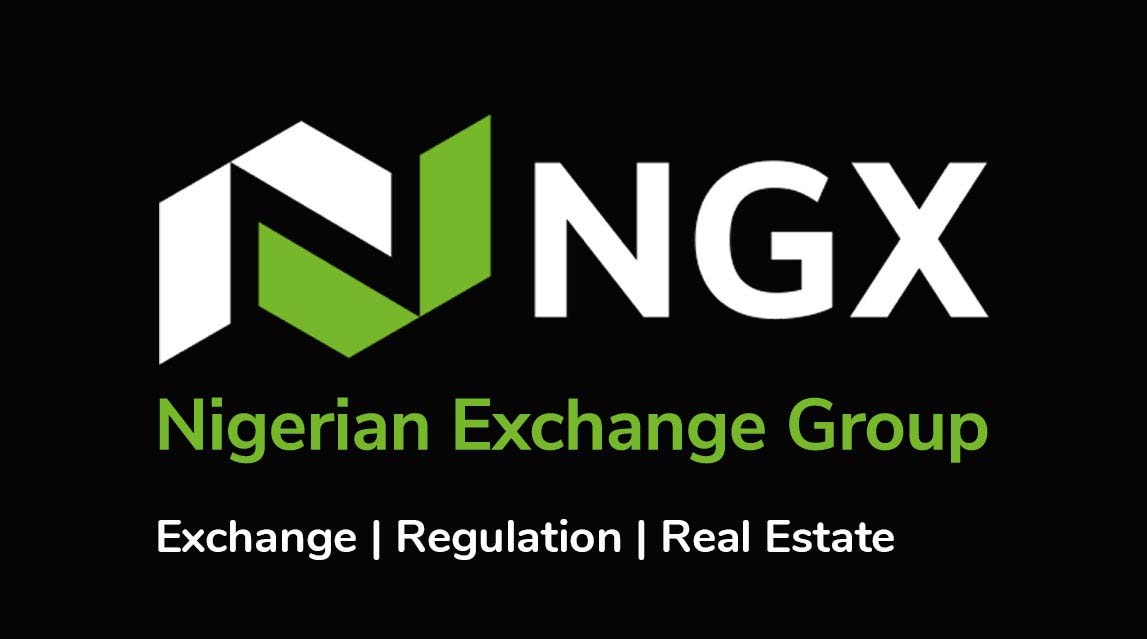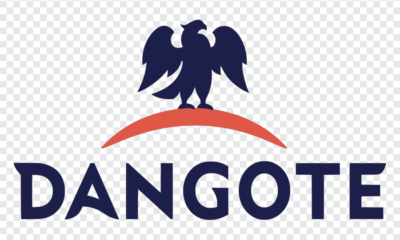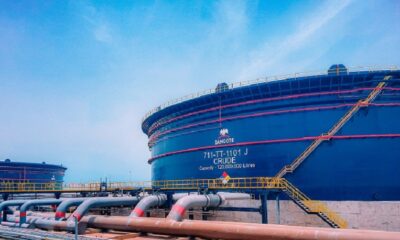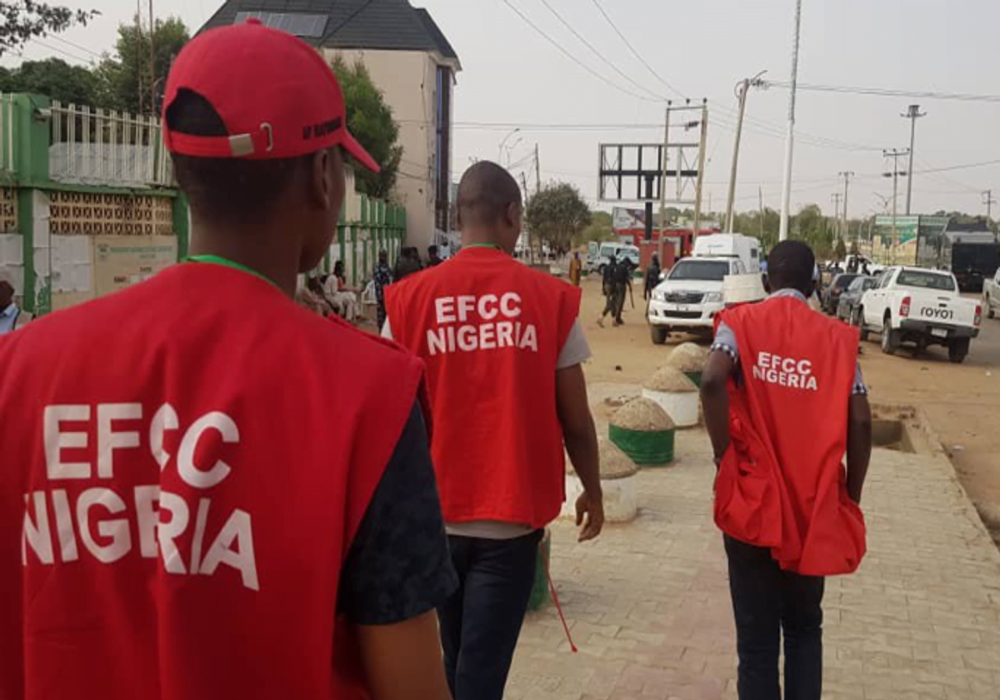Business
How Nigeria Can Become A Net Exporter Of Petroleum Products – Dangote

Nigeria must enhance its crude oil production capacity and effectively manage its crude supply to ensure adequate feedstock for domestic refineries, in order to transit from a net importer to a net exporter of petroleum products.
The Chairman of Dangote Refinery and Petrochemicals Company Limited, Aliko Dangote, made this assertion during his keynote address at a summit held in Lagos by the Crude Oil Refinery Owners Association of Nigeria (CORAN).
The event had top government officials, key stakeholders from the midstream and downstream sectors in attendance.
ALSO READ: Airlines To Source Jet Fuel Locally From Dangote Refinery, Ticket Prices Expected To Drop
On Nigeria’s potential as a refining hub, Dangote expressed concern that, despite producing over 3.4 million barrels of crude oil per day, Africa was importing around 3 million barrels of petroleum products daily.
He noted that these imports, primarily from Europe, Russia, and other regions, were estimated to cost approximately $17 billion as at 2023.
He opined that Nigeria could capitalise on this situation to become a net exporter of refined petroleum products, as the markets, particularly Africa, would be more competitively served from Nigeria.
In his words, “Both the crude oil and the petroleum products will travel shorter distances. The logistics costs of floating storage will be eliminated, and countries can purchase their petroleum product requirements just-in-time.
“Nigeria and Africa can become completely self-sufficient, and we can keep all the value on our shores. We have done it in cement, and we can certainly do it for petroleum products.
“It is worth noting that the Dangote Refinery already produces sufficient diesel and jet fuel to meet Nigeria’s demand. We recently started the production of PMS and will soon ramp up to meet Nigeria’s needs.
“Our refined products have been exported to diverse markets, including Europe, Brazil, the UK, the USA, Singapore, and South Korea.”
Represented by Engr. Mansur Ahmed, Group Executive Director of Dangote Industries Ltd, Dangote emphasised that Nigeria must develop a refining capacity of 1.5 million barrels per day and prioritise domestic crude supply obligations to seize this opportunity.
Acknowledging the arising and future challenges, he urged the government to incentivise investors, contrasting this with the Dangote Oil Refinery, which was built without any government incentives.
“. . . It is unfortunate that while countries like Norway are putting oil proceeds into a future fund, in Africa, we are spending oil proceeds from the future. We will also need to prioritise the implementation of domestic crude supply obligations. We will need to expand our crude oil production capacity to support demand from new refining capacity.
“The government of President Bola Ahmed Tinubu is taking active steps to achieve this through fast-tracking IOC divestments and other initiatives,” he stated.
Emphasising that global developments in the petroleum sector, particularly in Europe, will disrupt historical trade flows for refined petroleum products in Africa, Dangote stated that Nigeria is uniquely positioned to capitalise on this opportunity and become a significant player in the global oil industry.
To achieve this, Dangote called for consultation, collaboration, and cooperation among stakeholders.
“As a vibrant exporter of refined products, Nigeria will witness an improvement in its balance of trade and generate much-needed foreign currency. Nigeria’s potential as a refining hub is clearly not in doubt; let us work together to make it happen,” he urged.
The foremost industrialist noted that the summit’s theme, “Making Nigeria a Net Exporter of Petroleum Products,” would have seemed unrealistic a few years ago, and added that despite being Africa’s largest crude oil producer, Nigeria has historically relied on imports to meet its refined petroleum product needs.
However, he emphasised that the Dangote Petroleum Refinery and Petrochemicals is poised to transform Nigeria from a “net importer” to a “net exporter” of refined petroleum products, establishing the country as an emerging player in global downstream trade flows; with refined products already exported to various markets, including Europe, Brazil, the UK, the USA, Singapore, and South Korea.
Commending Dangote for this transformation, Chairman of IPPG/Waltersmith Refinery & Petrochemicals Co. Ltd, Abdulrazaq Isa, called on the government to support domestic refiners by ensuring the availability of crude, adhering to domestic crude supply obligations, and implementing effective pricing and monitoring measures to prevent smuggling.
On his part, Chairman of CORAN’s Board of Trustees and CEO of Integrated Oil & Gas, Captain Emmanuel Iheanacho (rtd), remarked that the Dangote Oil Refinery has set a high standard by producing Euro-V products, thus protecting citizens from exposure to high-sulphur products.
He noted that transforming Nigeria into a net exporter would bring numerous benefits but reiterated the need for increased investment to boost crude production, lamenting that Nigeria loses approximately $83 billion annually by not meeting its OPEC quota.
While acknowledging that tank farms remain essential despite local refining, Iheanacho urged the Nigerian Midstream and Downstream Petroleum Regulatory Authority (NMDPRA), to consider cancelling import licences, because Nigeria can now meet her local demand.
Chairman of Major Energies Marketers Association of Nigeria (MEMAN), Huub Stokman, stated that Nigeria was on the verge of becoming Africa’s refining powerhouse, which would significantly boost the economy.
The Chairman of CORAN, Momoh Oyarekhua, also expressed concern over challenges related to crude supply and stated that domestic refiners will work with regulators and stakeholders to address these issues.
The Minister of State for Petroleum Resources (Oil), Senator Heineken Lopkobiri, assured that the government would continue to refine frameworks to enhance crude production and support domestic refineries.
His counterpart from the Ministry of Industry, Trade and Investment, Dr. Doris Uzoka-Anite, emphasised the Tinubu-led administration’s commitment to ensuring value addition for mineral resources before export.
Two panel sessions were held to discuss Nigeria’s downstream petroleum refining sector and its potential impacts, as well as policy strategies for achieving self-sufficiency in petroleum products.
Business
Lawmakers Call For Immediate Reversal Of ATM Fee Increase

The Central Bank of Nigeria (CBN) is under pressure to suspend its recently introduced increase in Automated Teller Machine (ATM) transaction charges due to the country’s worsening economic conditions.
During Tuesday’s plenary session, Marcus Onobun, a lawmaker representing Esan Central/Esan West/Igueben Federal Constituency in Edo State, raised concerns over the policy through a motion of urgent public importance.
He noted that the CBN’s directive not only increases withdrawal fees but also removes free ATM transactions for customers using other banks’ machines, adding to the financial strain on Nigerians.
SEE ALSO: Direct CBN To Suspend ATM Fee Hike Pending Court Verdict, SERAP Tells Tinubu
According to the new regulations, customers withdrawing from their own bank’s ATMs will still enjoy free withdrawals.
However, those using other banks’ ATMs will now be charged N100 for withdrawals of N20,000 within a bank’s premises. At off-site ATMs, such as those in shopping malls or markets, the charge remains N100, but with an added N500 surcharge.
Onobun, a member of the Peoples Democratic Party (PDP), argued that Nigerians are already struggling with economic difficulties, including high inflation, rising fuel costs, increased electricity tariffs, and multiple banking fees.
He warned that the additional charges could further discourage financial inclusion, particularly among low-income earners, contradicting the CBN’s own agenda.
“The banking sector continues to record significant profits, yet customers are being burdened with more charges without any improvement in service delivery or infrastructure. This is unfair and unacceptable,” he stated.
Following his motion, Speaker Tajudeen Abbas put the matter to a voice vote, and lawmakers overwhelmingly supported it.
As a result, the House of Representatives called on the CBN to immediately halt the implementation of the policy until further consultations are held with relevant banking and finance committees.
Business
NNPC Ltd Clarifies Naira-Crude Contract With Dangote Refinery

The Nigerian National Petroleum Company Limited (NNPC Ltd) is already emplacing an new naira for crude contract with the Dangote Petroleum Refinery and Petrochemicals, because the initial contract was for six months which expired in March 2025.
This clarification was made in a statement in Abuja by the Chief Corporate Communications Officer, NNPC Ltd, Olufemi Soneye on Monday.
ALSO READ: Naira-For-Crude Policy Still-In-Force – Chairman, Technical Sub-Committee
According to Soneye, the NNPC Limited has noted recent reports circulating on social media regarding the alleged unilateral termination of the crude oil sales agreement in Naira between NNPC Ltd. and Dangote Refinery.
To clarify, the contract for the sale of crude oil in Naira was structured as a six-month agreement, subject to availability, and expires at the end of March 2025. Discussions are currently ongoing towards emplacing a new contract.
Under this arrangement, NNPC Ltd. has made over 48 million barrels of crude oil available to Dangote Refinery since October 2024. In aggregate, NNPC Ltd. has made over 84 million barrels of crude oil available to the Refinery since its commencement of operations in 2023.
NNPC Limited remains committed to supplying crude oil for local refining based on mutually agreed terms and conditions.
Business
NGX Group, SEC, Etc, Rally Stakeholders On Gender Equality

The Nigerian Exchange Group Plc (NGX Group), in collaboration with Central Securities Clearing System Plc (CSCS), and other stakeholders hosted a high-impact symposium to mark International Women’s Day 2025.
Held under the theme “Accelerate Action for all Women: Rights, Equality, and Empowerment,” the event rallied stakeholders to drive gender inclusivity in Nigeria’s economy.
Minister of Arts, Culture, Tourism, and Creative Economy, Hon Hannatu Musa Musawa, delivered the keynote, stressing the economic and social imperative of women’s empowerment. “Investments in education, vocational training, and capital access are crucial for sustainable growth,” she stated.
On his part, Group Chairman of NGX Group, Umaru Kwairanga, reaffirmed the group’s commitment to gender diversity. “We are taking deliberate steps to ensure fairness and empowerment for women, enabling them to contribute significantly to Nigeria’s economic growth,” he said.
ALSO READ: Osun LGs: Adeleke Briefs Traditional Rulers
In the same vein, Director General of Securities and Exchange Commission (SEC), Dr. Emomotimi Agama, called for reforms to boost women’s participation in capital markets.
“We must push for policies that encourage female representation in leadership and governance. This is a collective responsibility,” he urged.
In his contribution, Group Managing Director and CEO of NGX Group and Chairman of CSCS, Temi Popoola, emphasized the urgency of the symposium’s theme, “Accelerate Action.”
“We remain steadfast in our commitment to creating opportunities that empower women in business, finance, and leadership. Our goal is to build an ecosystem where women not only thrive but also inspire the next generation of leaders,” he remarked.
The event featured a panel of accomplished female leaders, including Chalya Shagaya, Hilda Baci, Pai Gamde, Adesuwa Okunbo Rhodes, Kari Tukur, Odiri Oginni, Solape Akinpelu, and Adaorie Udechukwu, who shared strategies for breaking barriers and fostering women’s economic empowerment. Professor Folasade Ogunsola, Vice Chancellor of the University of Lagos, emphasized the role of education and mentorship in bridging gender gaps.
The NGX Group hosted the Ring the Bell for Gender Equality ceremony, a global initiative promoted by IFC, UN Global Compact, UN SSEI, UN Women, and the World Federation of Exchanges (WFE). The ceremony honoured women’s contributions to Nigeria’s capital markets and reinforced NGX Group’s commitment to inclusivity.
The event, attended by veteran actress Joke Silva and female directors from NGX Group, Ojinika Olaghere, Lilian Olubi, Ummahani Ahmad Amin, Amina Mohammed as well as SEC Commissioner, Frana Chukwuogor, called for accelerated action to empower women across all sectors.
The symposium and the closing gong ceremony reinforced NGX Group’s role in driving gender equality and economic growth. As Honourable Hannatu Musa Musawa aptly stated, “The time for rhetoric is over. It is time for action.”




















